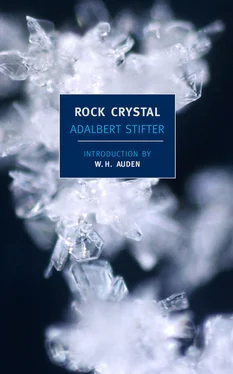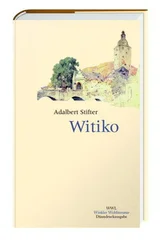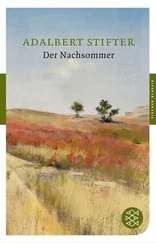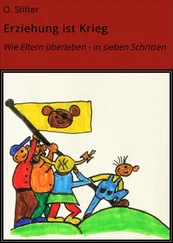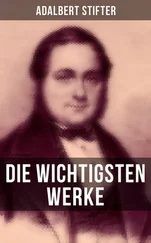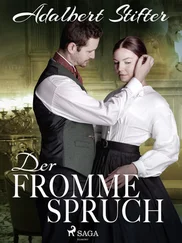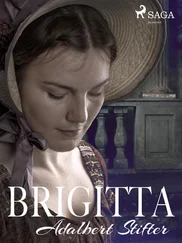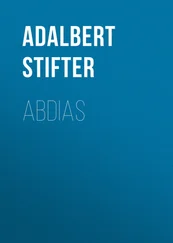After having been married a year she bore her husband a son, and several years later, a daughter. She felt, however, that he did not love the children as much as she thought he ought to, and as she herself loved them; for he looked so serious most of the time and was always preoccupied with his work. He rarely petted or played with them, and always addressed them quietly as one speaks to grown persons. In the matter of food, clothes and all material things, however, his care for them was above reproach.
At first, the dyer’s wife often came to Gschaid and the young couple also at times went over to Millsdorf to attend church fairs and on other festive occasions. But after the children were born, things were different. Mothers may love their children and tenderly long for them when they are absent, but a grandmother’s longing for her grandchildren amounts almost to a morbid craving. The dyer’s wife would often come over to Gschaid to see the children, bring them presents, stay a while, and then, after giving them some good advice, depart. But when age and health made these frequent journeys inadvisable and the dyer for that reason objected to them, a different plan was devised, everything was reversed, and the children visited their grandmother instead. Their mother herself would often take them in the carriage or they would be entrusted to a maidservant, and driven in a buggy over the col, well bundled up since they were still of tender years. But when older, they would go on foot, accompanied by their mother or a maid, and when the lad had grown strong, knowing, and self-reliant, they let him take the familiar road over the col by himself, and even, when he begged to take his little sister along, if the weather was good would allow her to go with him. There was nothing unusual about this in Gschaid, since the people were hardy walkers, and parents — especially a man like the shoemaker, admired physical strength and were glad to see it in their children.
So it came about that the two children went over the col oftener than any of the other villagers and in this way, like their mother who had always been treated as a stranger in Gschaid, the children became strangers too; and were hardly Gschaid children, but belonged half to Millsdorf.
Conrad, the boy, already gave evidence of his father’s serious disposition, and Susanna the little girl, named for her mother and called Sanna for short, had unbounded faith in his knowledge, judgment and physical strength, and followed unquestioningly wherever he led, just as their mother accepted their father’s guidance and never questioned his superior judgment in all matters.
On clear days the children could be seen early in the morning, making their way down the valley, crossing the meadow and coming to the place where the col forest looks down upon it. Going up toward the forest they would keep to the path, finally reaching the highest point, and before noon be descending the open meadows on the other side, toward Millsdorf. Conrad then showed Sanna the ones belonging to their grandfather; as they walked across the fields he told her about the various kinds of grain; they would look at the cloth-lengths hanging from poles under the rafters to dry, and capering in the wind or blown into antic postures; then they would hear the fulling-mill and the pounding in the tannery built by their grandfather beside the brook, for fullers and tanners; and now, turning a corner of the field, they were soon entering the garden through the back gate where they were welcomed by their grandmother. She always seemed to know when they were coming, would watch from the window, and seeing Sanna’s red kerchief shining in the sun would recognize them from far away.
She then led them through wash-house and press into the living-room, made them sit down, and would not let them open their neckerchiefs or spencers lest they catch cold. After the midday meal they were allowed to go out and play, run about the house, or do anything they liked, provided it was not indecorous or forbidden. The dyer, always at table with them, asked them about their school work, dwelling particularly on the subjects they should study. In the afternoon, even before it was time, their grandmother would begin urging them to start back, so that they would not be late reaching home. Although the dyer had given his daughter no dowry and vowed that until his death none of his fortune should be given away, his wife had no such scruples, and not only gave the children all kinds of things when they visited her, frequently even pieces of money of considerable value, but also and invariably made up two little bundles in which she put such things as she thought they might need or that would give them pleasure. And even if they had the same things in the shoemaker’s house in Gschaid — as good as one could desire — their grandmother would give for the sheer pleasure of giving, and they would carry her gifts home with them as something very precious. So it always happened that the day before Christmas they would take home carefully wrapped well-sealed packages, quite unaware that they were presents they would receive that same evening.
Their grandmother’s bundling them off always long before it was time merely resulted in the children’s loitering at this spot or that along the way. They liked to sit by the hazel-trees on the col and crack nuts with stones; or if there were no nuts, play with leaves or little sticks or with the pine-cones that drop from the pine and fir branches in early spring. Sometimes Conrad would tell little stories to his sister, or coming to the wayside shrine, would take her a little way up the side-road at the left toward the heights, saying that that was the way to Snow-mountain, that there were crags and huge boulders up there, chamois scampering, and great birds flying about. He often took her even high up above the tree-line, and they would gaze at the dry grass and stunted heather; but he led her back again in time and they would have returned before the gloaming.
One winter, the day before Christmas, when in the valley of Gschaid early dawn had broadened into day, a faint clear-weather haze overspread the sky, so that the sun creeping up in the south-east could be seen only as an indistinct reddish ball; furthermore, the air was mild, almost warm in the valley and even in the upper reaches of the sky as indicated by the unchanging forms of the motionless clouds. So the shoemaker’s wife said to the children: “Since it is such a fine day and since it has not rained for a long time and the roads are hard, and since yesterday your father gave you permission, provided it was the right kind of day, you may go over to Millsdorf to see your grandmother; but first you must ask your father again.”
The children, still in their night-clothes, ran into the adjoining room where their father was talking with a customer, and begged him — since it was such a beautiful day — to give them his permission again. And as soon as they had his consent, they ran back to their mother who then dressed them both with great care, or rather, dressed the little girl, for the lad was able to dress by himself and was ready long before his mother had finished bundling up the little one in warm clothes. Then, when everything was right, she said: “Now Conrad, listen carefully. Since I am letting your sister go with you, you must start for home in plenty of time and you must not loiter on the way. As soon as dinner at your grandmother’s is over, you must leave at once and come straight home. The days are short now, and the sun sets early.”
“Yes, Mother, I know,” said Conrad.
“And watch out for Sanna, so she doesn’t fall or get herself overheated.”
“Yes, Mother.”
“Well, God protect you. Now go tell your father you are leaving.”
The lad slung a calfskin pouch over his shoulder by a strap — a perquisite deftly sewn by his father — and the children went into the next room to bid him farewell. They were soon back, and after their mother had made the sign of the cross over them in blessing, they skipped merrily off down the street.
Читать дальше
